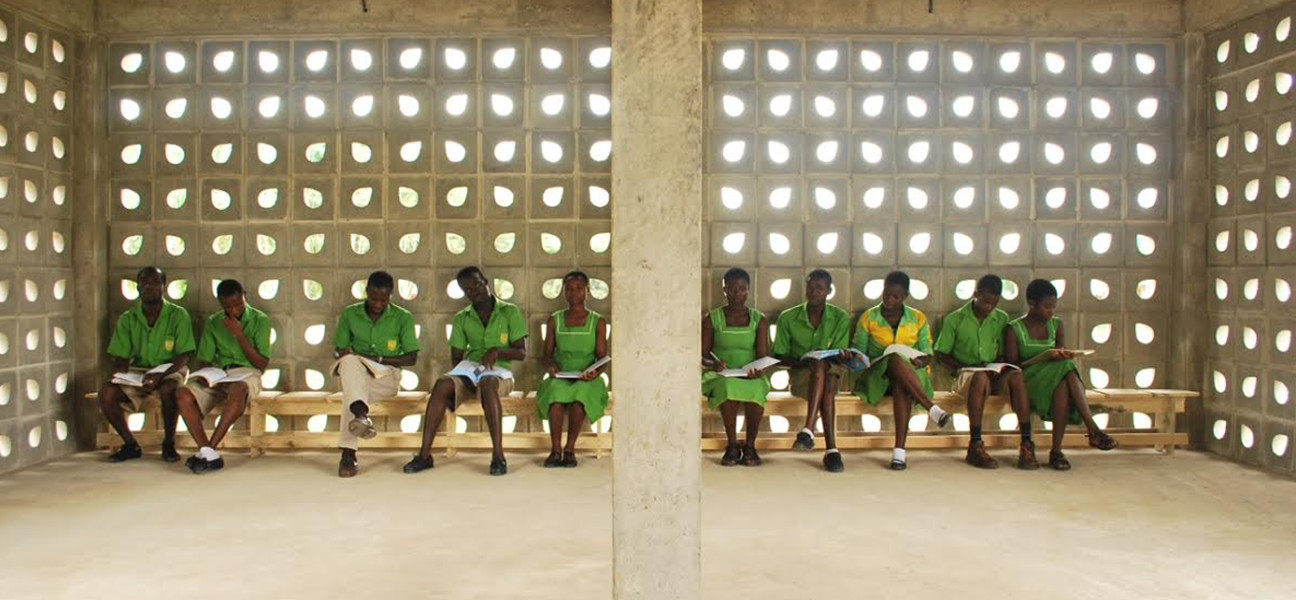Ghana Library
Citation of Merit
Firm: Frank Flury and Students of the Illinois Institute of Technology
Location: Twifo Hemang, Ghana
Client: Chief Nana Amoash Sasraku
Structural Engineers: Sanni Ojo & Partners, Rockey Structures

Ghana Library 2013 In the summer of 2013, a group of students and alumni, traveled to the rural village of Twifo Hemang, Ghana to build a library for secondary school students.This project was initiated by a native Ghanaian who had previously participated in a design/build project. He had observed, first-hand, that design/build projects offer students team building and problem solving opportunities by immersion in real-world situations. Furthermore, he believed that the Ghana Library Project would “bring different communities together to take on a common issue.” The project was designed over the course of the spring semester and was built during the summer semester of 2013. However, upon their arrival in Twifo Hemang, and after months of planning and designing, the team had to reassess their design; this due to the realization that the building was too small for the needs of the school and to the surrounding school buildings.
The building was constructed using a formwork of repeated “12’ by 24’ boxes,” reducing material consumption and construction time. The library was constructed out of concrete, with an outer wall of custom-made blocks, all fabricated from a single wooden mold and featuring a leaf pattern, adding both character and ventilation. The building was made almost entirely with the use of hand tools, because power tools were not readily available. While the majority of construction was completed by the students, community members helped with digging trenches, mixing concrete and offering construction tips and moral support. The Ghanaian Alumni hopes that watching the team in action inspired the village member to build their own structures and to embrace creativity. “Once we leave, they will realize, ‘We can do this,’ because we intelligently got them involved in what we were doing,” he says. “We weren’t going in necessarily to tell them what they can and cannot do. We went in there with the same tools they have, but we used those tools in a different way.”



